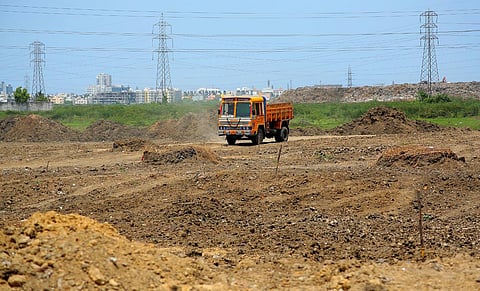

CHENNAI: Will the Tamil Nadu government go in for conclusive land titling rather than the presumptive land titling being practised in the state?
After the committee to draft a model act and rules for Indian states on conclusive land titling submitted its report to the Niti Aayog last week, the state government is studying various aspects of the act to decide whether to implement the model act in the state or not, according to official sources in the revenue department.
Land ownership, currently, is based on a registered sale deed (a record of the property transaction between the buyer and seller). Other documents include the record of rights, which includes the details of property, property tax receipts and survey documents.
However, these documents are not a government guaranteed title to the property, but only a record of the transfer of property. As such, the buyer is not privy to previous ownership records of a property. This land ownership as determined by such sale deeds, is presumptive in nature, and subject to challenge in the court.
However, in a conclusive titling system, the government provides guaranteed titles and compensation in case of any ownership disputes. This will require shifting to a system of registered property titles (as opposed to sale deeds) as the primary evidence of ownership, and having clear and updated land records.
Since land is a state subject, the onus on adopting the model act lies with the state. Official sources said that the Centre wants a uniform law across the country to reduce land-related litigations and enable land acquisition for infrastructure projects.
It is learnt that the state took part in three video conferences to discuss the conclusive land titling with the Centre. Once the final draft is submitted to the state, a final call will be taken in this regard.
Currently, land records systems in the country represent the Zamindari and Ryotwari models in India. In Tamil Nadu, the state revenue department follows the ryotwari system and it is easy to migrate to conclusive land titling. But this will depend on the model act drafted by the Centre, the official stated.
Interestingly, the registration department has already launched a digital initiative for scanning registered documents from 1865 to July 5, 2009 and microfilming them.
Even the Indian real estate market has been grappling with lack of transparency for decades which has given rise to litigation, sometimes for decades due to disputed ownership of property. Moreover, the risk of faulty land records has grown quite high as the cost of land across the country has grown exponentially in the last few decades.
Sources in the state government say the move by the Centre is a welcome step as it would bring clarity as in any family, wealth is in the form of land.
In the state, land titles are not clear. In many cases, the land assets are through joint patta and it becomes difficult for any individual to sell it. The conclusive land titling will resolve this issue.
But what does the draft model act stipulate?